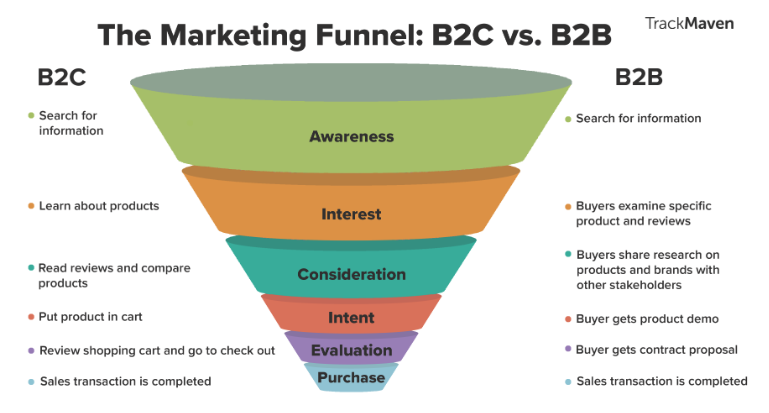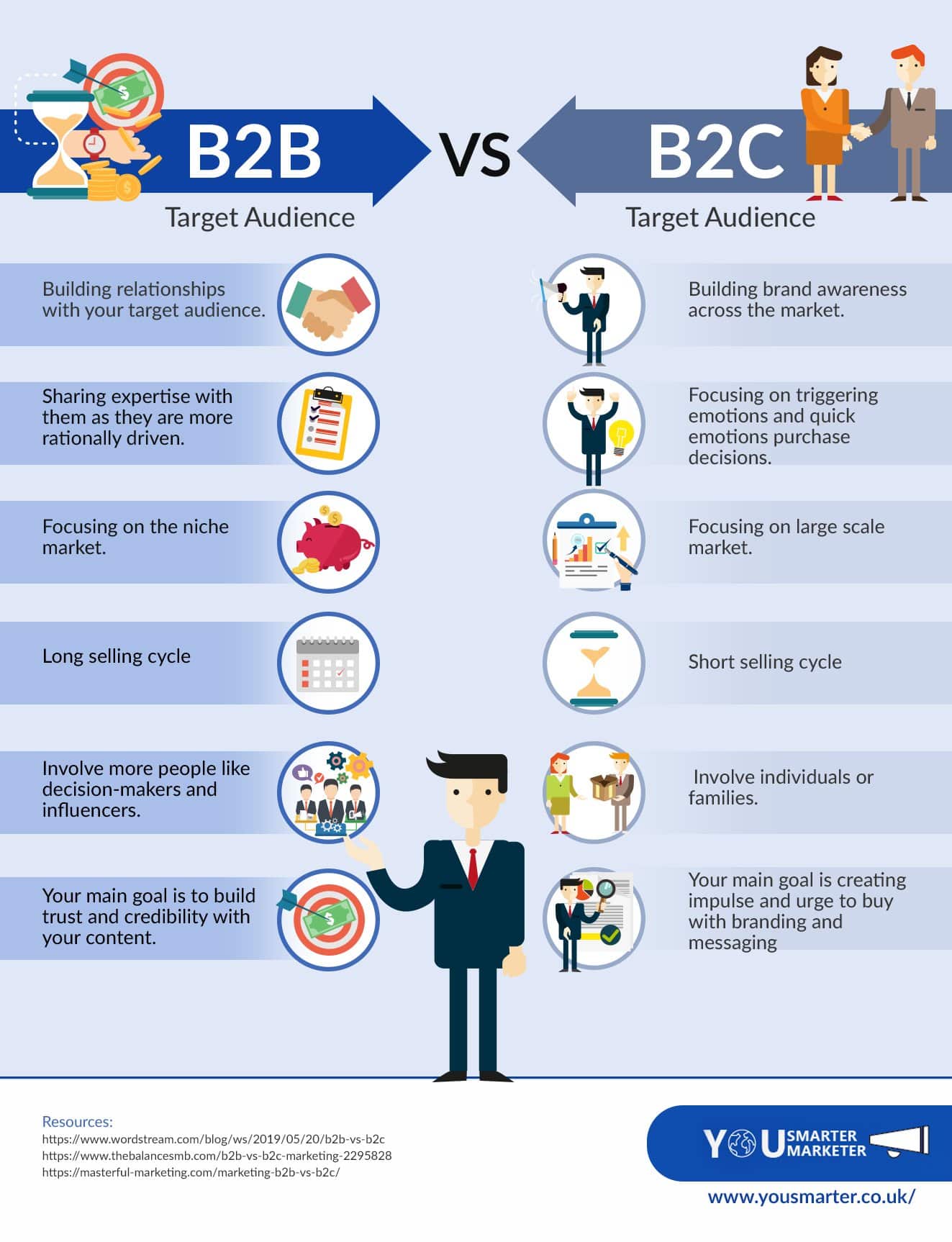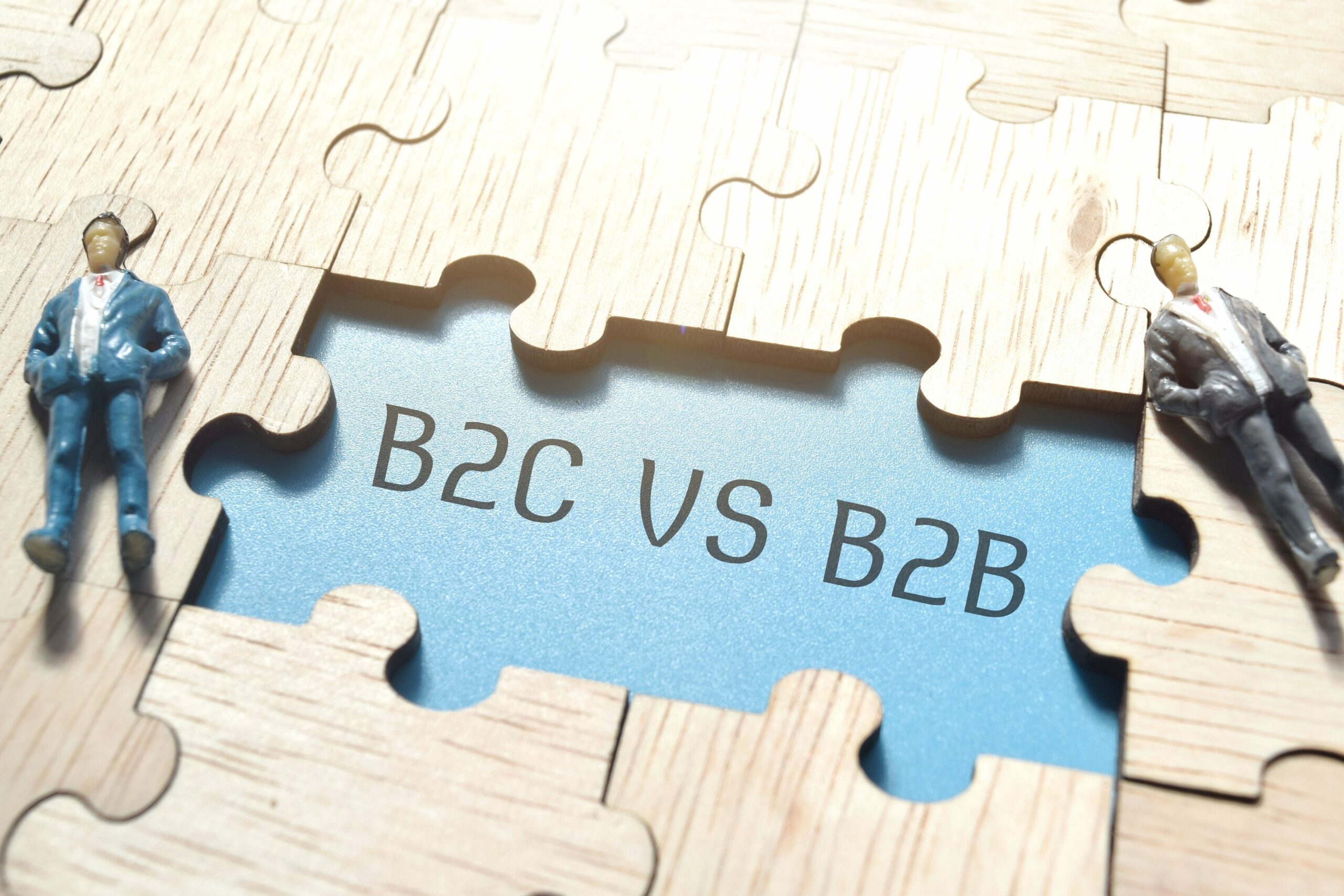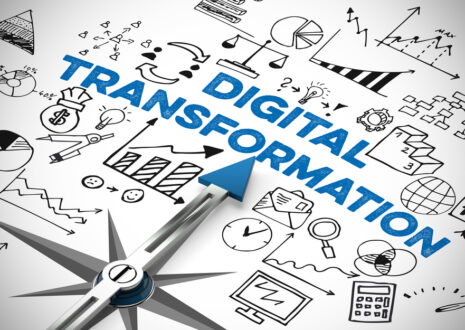Since every business is either selling to other businesses or individuals they can be classified as either B2B or B2C. The fundamental difference is that the target audience will make a world of difference in the marketing strategy. In order to fully understand what differentiates B2B from B2C marketing, you’ll find out what defines both concepts and get your hands on their 5 fundamental differences.
What is B2B Marketing?
An organization that targets other businesses as buyers are referred to as B2B marketing or business-to-business marketing. In a broad sense, B2B marketing content tends to be more informational and straightforward than B2C. This is because business purchase decisions, in comparison to those of consumers, are based more on bottom-line revenue impact. Return on investment (ROI) is a primary focus for corporate decision makers.
With consideration to the nature of B2B marketing, it often targets buying committees in various key stakeholders of a business. Though seemingly complex and challenging, the availability and accessibility of business information and data are of great help to marketers in influencing their target audience’s buying decisions.
What is B2C Marketing?
An organization that focuses its marketing directly to consumers is known as a business-to-consumer marketing (B2C). A B2C marketing strategy does not only focus on the usefulness or value of the product, but also on getting an emotional response from customers to improve the customer experience.
Typically, B2C purchases are much smaller investments compared to B2B. Consumers generally seek out goods and services based on an immediate need, and make purchases faster, with less research and due diligence than a business would conduct.
B2B vs B2C marketing: The 5 fundamentals
In order to fully understand the differences between B2B and B2C marketing, let’s take a look at the following 5 aspects:
Customer relationships
B2B marketing focuses on building personal relationships and decisions are more often made from a logical perspective. In contrast, B2C marketing’s focus is on a transactional approach by which decisions are made from an emotional perspective.

Focus on relational marketing
The purpose of B2B marketing is to build personal relationships, which are important for a variety of reasons. Personal relationships drive long-term business growth, enhance your brand’s trustworthiness, and give you a competitive advantage because customer retention is higher.
Ultimately, building meaningful relationships with customers will be more profitable than trying to attract new clients. In fact, it costs five times as much to attract a new customer than to keep an existing one.
B2C Marketing: Customer relationships are transactional
Instead of focusing on the long-term, transactional marketing focuses on single, “point of sale” transactions. The goal of B2C marketing strategy in this area is to attract consumers to your website and generate sales. To do this, the entire customer experience needs to be flawless. This can be crucial for your business because 73% of consumers say customer experience is a deciding factor when making purchase decisions.
Effective tools to enhance your relationship building with B2C consumers include but are not limited to personalized email marketing, digital marketing on social media, excellent customer service, and blog postings.
The #1 benefit of outstanding customer relationships
Either your B2B as your B2C marketing strategy will benefit out of positive customer relationships because a positive user experience can encourage customers to keep coming back and leave customer reviews. The importance of customer reviews cannot be overstated for your B2B or B2C marketing strategy.
93% of customers will read reviews of local businesses to determine their quality and even bad reviews are helpful – if handled – well – because 95% of customers get suspicious of a rating if there are no negative reviews.
Branding
Branding is important for either B2B or B2C marketing, but there are a few differences. A branding campaign in B2B, for instance, is more focused on positioning, while a branding campaign in B2C focuses more on messaging.
B2B Marketing: positioning is key
Establishing a strong brand is key for B2B businesses to build deep relationships with clients. Businesses that are able to portray themselves in the market help drive brand recognition and lead generation. Being able to position your brand toward your target audience will help drive brand recognition and ramp up your lead generation.
B2C Marketing: Personalization drives customer loyalty
Providing a personalized brand experience is another vital component of B2C marketing. Strong brands encourage customer loyalty and help customers stay engaged. Personalization helps open if customers are open enough to a brand and can recognize it quickly, they are more likely to find it worth purchasing.
User-generated content (UGC) is an effective way for B2C brands to build a strong brand awareness through their content strategy. UGC delivers authentic messages that inspire a buy and also creates loyalty to confirm credibility while creating an emotional connection with your target audience.
Decision-making process
Businesses often use a step-by-step decision-making process that can help the business make more deliberate, thoughtful decisions by organizing relevant information and defining alternatives. This approach increases the chances that the most satisfying alternative will be chosen.
B2B Marketing: Longer communication process
B2B decision making often takes a longer time because more executives from within a company are involved in the purchase. An average of 6.2 decision-makers are involved in the B2B sales cycle. That means you have to adapt your B2B marketing strategy to convince at least six people in order to successfully sell a solution.
B2C Marketing: Keep it short and simple
The B2C decision-making process is simple and individual. The C in B2C stands for consumers who take the decision whether to buy the product or not, taking into account the following factors:
- Costs and value
- Comparing customer reviews
- How credible and reliable is the brand?
Audience targeting
Identifying who your target audience is allows your business to focus your marketing efforts on the groups that are most likely to use your products or services. If a business has a properly defined audience, then the business will benefit in multiple ways,

B2B marketing: Target your niche
B2B businesses normally work in a niche market, that’s why B2B marketers will focus on key decision-makers within an organization. In order to reach this specific audience, 44% of B2B marketers use buyer personas to attract their niche and make sure that all of their marketing efforts are geared toward this small group of decision-makers.
By implementing buyer persona’s in your audience targeting, your business can benefit online and offline. For example, Skytap, a self-service provider of cloud automation solutions, implemented a targeted content marketing strategy and saw the following results:
- 124% increased sales leads
- 55% increase in organic search traffic
- 97% increase in online leads
- 210% increase in North American site traffic.
B2C marketing: Follow the funnel
Unlike B2B businesses, B2C businesses work in a larger-scale market, and the target is much more spread out. B2C marketers can direct their campaigns at just about anyone who is interested in using their products or services, not necessarily the buyer.
Did you know that a full 68% of companies have not identified or attempted to measure a sales funnel? While a good funnel that creates an omnichannel experience can boost the user experience, overall conversion rate, and reinforce the brand message. Without a working sales funnel, it’s nearly impossible to convert leads into sales.
Advertising and Communication
Is there a huge difference between B2B and B2C marketing communication? And what kind of communication is the most effective to use in each approach? Let’s dive deeper into the differences between B2B and B2C advertising and communication.
B2B marketing: Lead generation
For B2B brands, establishing a good relationship with their clients is their first priority in marketing. Communication is mostly focused on lead generation and brand recognition, by sharing content marketing directly with clients through mail or blogs.
As 92% of small business owners use social media, networking through social media platforms has become increasingly popular. In particular, LinkedIn is a professional social platform designed to facilitate communication between businesses. In fact, 80% of B2B leads come from LinkedIn.
B2C marketing: Content marketing
B2C customers are the ideal targets for digital and content marketing. B2C brands can use a range of multimedia tools like SEO, social media marketing, influencer marketing, and Google ads to advertise and communicate with their audience.
For example, Spotify inspired fans on TikTok to use their brand new feature on GetReadyWithMusic by partnering with digital creators and stars Dixie and Charli D’Amelio.
Did you know B2B and B2C marketing are not so different at all?
Whether your business or brand practices B2B or B2C marketing, customers are at the heart of your business. Focusing on making your marketing strategy customer-centric will help you create a positive customer experience, which in turn facilitates your business’s sustainable growth. As ad spends continue to soar in certain industries, digital marketing is predicted to trump traditional marketing (if not sooner) in the upcoming years.
Build your image with a team of brand and design experts who are ready to help you create a seamless digital experience using a human-centric approach that your audience will remember and love, and to enhance your B2B or B2C marketing strategy and set your brand miles away from the pack.
We are excited to hear from you, because we want to be part of your digital transformation as we strive to help you to succeed and thrive in the digital world.




